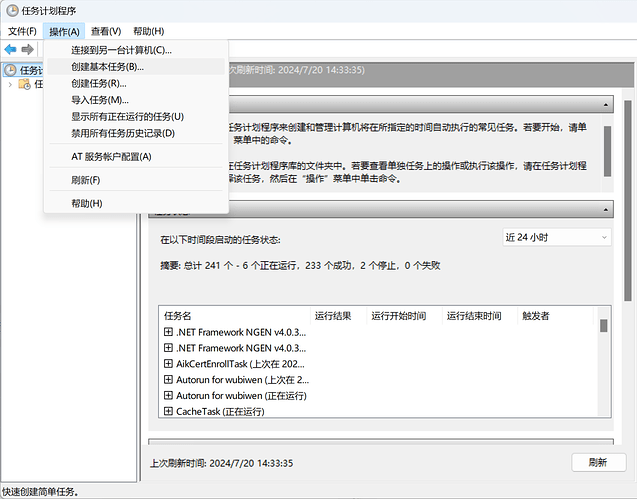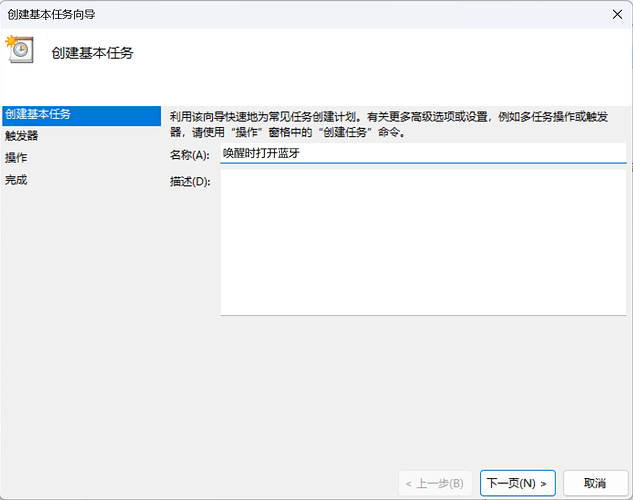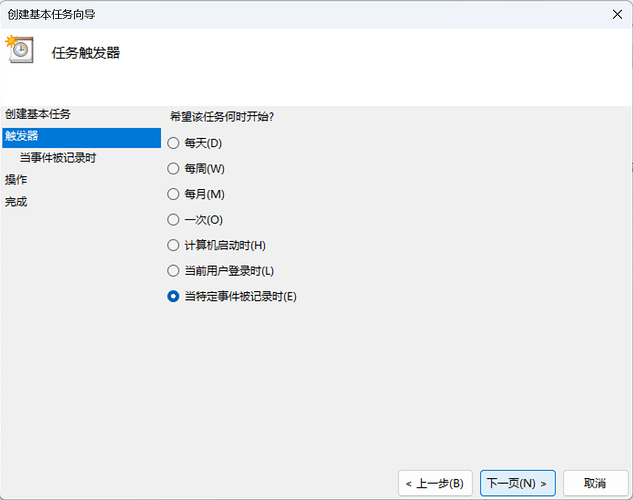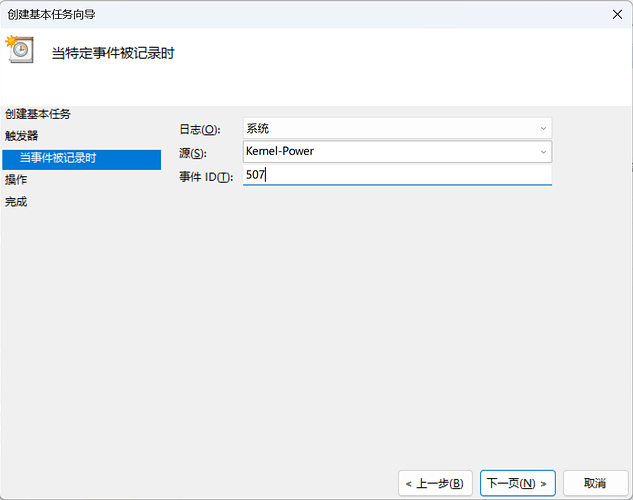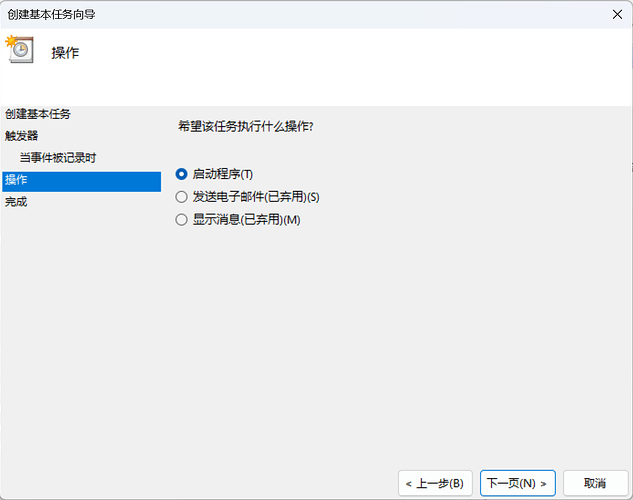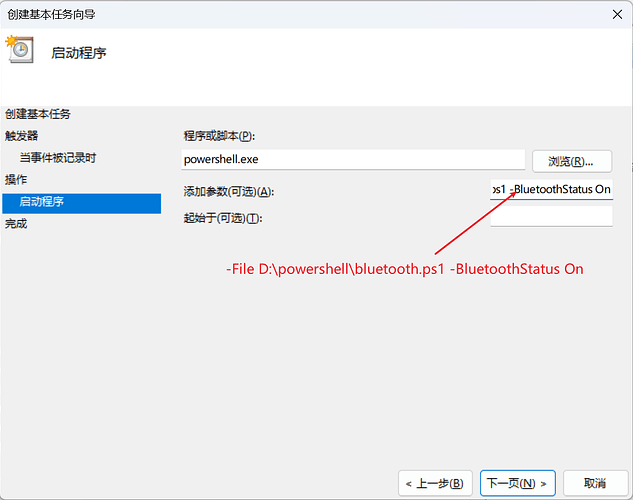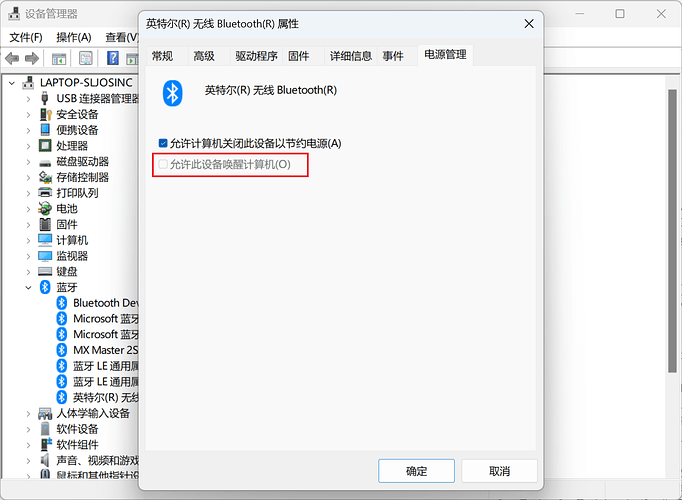问题回顾:win11系统,怎么样才能让蓝牙鼠标不唤醒睡眠中的电脑
第一步:睡眠之前关闭蓝牙
本来这一步是打算通过计划任务去实现的,但是配置之后发现休眠的时候不会关闭蓝牙,唤醒之后才会打开蓝牙,所以只好通过autohotkey去实现
1. 下载 autohotkey
2. 创建脚本
autohotkey脚本(问了半天的gpt和claude)
; 定义快捷键,例如 Ctrl+Alt+S
^!s::
; 运行 PowerShell 脚本来开启蓝牙
RunWait, powershell.exe -File “D:\powershell\bluetooth.ps1” -BluetoothStatus Off, , Hide
; 使用 PostMessage 发送 WM_SYSCOMMAND 消息来进入睡眠模式
PostMessage, 0x112, 0xF170, 2, Program Manager
return
powershell脚本(bluetooth.ps1)(来源)
[CmdletBinding()] Param (
[Parameter(Mandatory=$true)][ValidateSet(‘Off’, ‘On’)][string]$BluetoothStatus
)
If ((Get-Service bthserv).Status -eq ‘Stopped’) { Start-Service bthserv }
Add-Type -AssemblyName System.Runtime.WindowsRuntime
asTaskGeneric = ([System.WindowsRuntimeSystemExtensions].GetMethods() | ? { .Name -eq ‘AsTask’ -and _.GetParameters().Count -eq 1 -and .GetParameters()[0].ParameterType.Name -eq ‘IAsyncOperation`1’ })[0]
Function Await($WinRtTask, $ResultType) {
$asTask = $asTaskGeneric.MakeGenericMethod($ResultType)
$netTask = $asTask.Invoke($null, @($WinRtTask))
$netTask.Wait(-1) | Out-Null
$netTask.Result
}
[Windows.Devices.Radios.Radio,Windows.System.Devices,ContentType=WindowsRuntime] | Out-Null
[Windows.Devices.Radios.RadioAccessStatus,Windows.System.Devices,ContentType=WindowsRuntime] | Out-Null
Await ([Windows.Devices.Radios.Radio]::RequestAccessAsync()) ([Windows.Devices.Radios.RadioAccessStatus]) | Out-Null
$radios = Await ([Windows.Devices.Radios.Radio]::GetRadiosAsync()) ([System.Collections.Generic.IReadOnlyList[Windows.Devices.Radios.Radio]])
$bluetooth = radios | ? { _.Kind -eq ‘Bluetooth’ }
[Windows.Devices.Radios.RadioState,Windows.System.Devices,ContentType=WindowsRuntime] | Out-Null
Await ($bluetooth.SetStateAsync($BluetoothStatus)) ([Windows.Devices.Radios.RadioAccessStatus]) | Out-Null
3.运行autohotkey脚本,然后按Ctrl+Alt+S就可以实现关闭蓝牙然后睡眠,这时候蓝牙关了,我鼠标再怎么动也不会唤醒电脑了
第二步:唤醒的时候打开蓝牙
这一步通过计划任务实现
1.打开任务计划程序,创建一个任务
2.触发器选择事件
3.执行打开蓝牙的脚本
添加参数(可选)(A):-File D:\powershell\bluetooth.ps1 -BluetoothStatus On
这样就实现了取消勾选「允许此设备唤醒计算机」的功能,要是微软允许我取消勾选,我也不至于要废这么老鼻子劲去整这些东西,就想骂一句sb微软。
